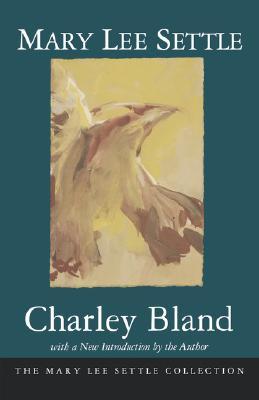Charley Bland, as his father describes him, would have been a prodigal son except he never had the gumption to leave home. Still, he has the charm most lost souls have, and for the widowed, 35-year-old narrator of Mary Lee Settle’s eleventh novel, returned home to West Virginia from a Bohemian life in Europe, this most eligible and most ineligible of bachelors becomes her reason to stay.
Living on what she can earn writing or tutoring French, hand to mouth in a part of the world and an era (late 50’s-early 60’s) in which money, heaven forbid poverty, cannot be discussed, she spends her time and energy and last bit of youth on this 40-plus bachelor who cannot make a man of himself “[P]rofane love,” she says, “is a place, an Eden, a prison. Within it, people glow, colors are bright, you believe everything you have always wanted to believe. It is a place of trust, of guilelessness and deep iridescent illusion. I think the snake that seduced Eve was not temptation but guile, for it was the one quality that could destroy her.”
The narrator is a foreigner now in her own hometown even to the extent that she is always explaining to the reader, her confessor, the Southernisms in what was once, surely, her own English. At first an object of interest, she holds on to the favorite Charley Bland longer than is acceptable, and is dropped with that crushing Southern politeness that is without malice and without pity.
Like so many books about dead affairs, this one is also an exorcism. And like so many writers, especially women writers. Settle through the medium of her narrator wants to dissect the hows and the whys of a lost intensity. There is not much in the way of plot, but as an “In Memoriam” the novel works very well. We read a writer as much for what he sees and how he describes what he sees as for the story he has to tell, and Settle not only has a lucid style but a wonderful eye. She understands with perfect clarity the kind of strong-willed mother that makes for a weak-willed son. She understands, too, that this free-ranging bachelor is bound like a slave to home, and that his lover, caught up in something she knows to be hopeless, living in the wrong part of town, dropped by his crowd, the country club crowd, is the free one.
But freedom, like money, is not a good in itself; it’s what you do with it that counts, and having spent so much of her life on bric-a-brac Charley Bland’s lover finds that when this affair is over she is only free to leave. Freedom was never what she wanted anyway; it is only all she has left. As she packs her trailer for New York her friend Plain George tells her ” ‘You’ll be back before you know it,'” giving her “the only words of comfort he knew,” the only words of comfort for an exile. Like so much of the (little enough) kindness that has been shown her, it is both a blessing and a lie.
[Charley Bland, by Mary Lee Settle (New York: Farrar, Straus & Giroux) 207 pp., $18.95]

Leave a Reply